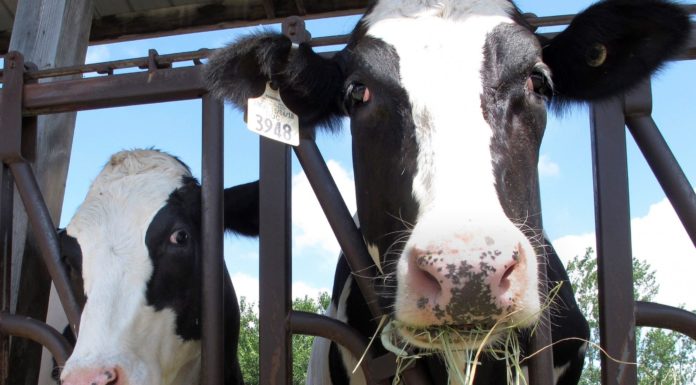(Foundation for Economic Education) While people tend to think reducing emissions involves shutting down coal plants, driving more electric vehicles, and relying more on solar and wind power—each of which comes with environmental and economic costs—these are not the only policies on the table.
Increasingly governments are targeting a different emission source: food (livestock specifically). The reasons for this are not hard to find.
No less an authority than the US Environmental Protection Agency (EPA) notes that about one third of climate warming from greenhouse gasses stems from human-caused emissions of methane. While CO2 gets more attention, the EPA notes that methane is actually a more potent greenhouse gas, trapping about 30 times as much heat as CO2 over a century.
A new law in Northern Ireland sets a target of zero net emissions by 2050, and the BBC reports the legislation includes a proposed 46 percent reduction in methane emissions.
Since about a third of human-caused methane gasses come from livestock, Northern Ireland is looking at a huge reduction of farm animals—especially sheep and cattle—to meet that goal.
“Northern Ireland will need to lose more than 1 million sheep and cattle to meet its new legally binding climate emissions targets,” The Guardian recently reported.
Specifically, according to estimates from the Ulster Farmers’ Union, some 500,000 cattle and roughly 700,000 sheep would have to “be lost in order for Northern Ireland to meet the new climate targets.”
While the pig and poultry sectors also will need to be cut to meet emission targets, climate officials said these sectors are less harmful to the environment than “red meat” livestock.
“If you look at the evidence on the lifecycle of greenhouse gas emissions, the red meat livestock sources – beef, dairy, sheep – have the highest emissions because they’re ruminant and they have high methane emissions,” Ewa Kmietowicz, head of the land use mitigations team at the Climate Change Committee told the paper.
Chris Stark, CCC chief executive, told The Guardian that a switch to arable farming would likely be necessary to maintain food production levels.
What is happening in Northern Ireland is part of a much larger push to wean humans off red meat, particularly beef, which humans consume to the tune of 350 millions tons each year.
Many people, including Microsoft founder Bill Gates, have argued nations have a responsibility to transition off beef for environmental reasons.
“I do think all rich countries should move to 100% synthetic beef,” Gates remarked in an interview with MIT Technology Review last year. “You can get used to the taste difference, and the claim is they’re going to make it taste even better over time.”



